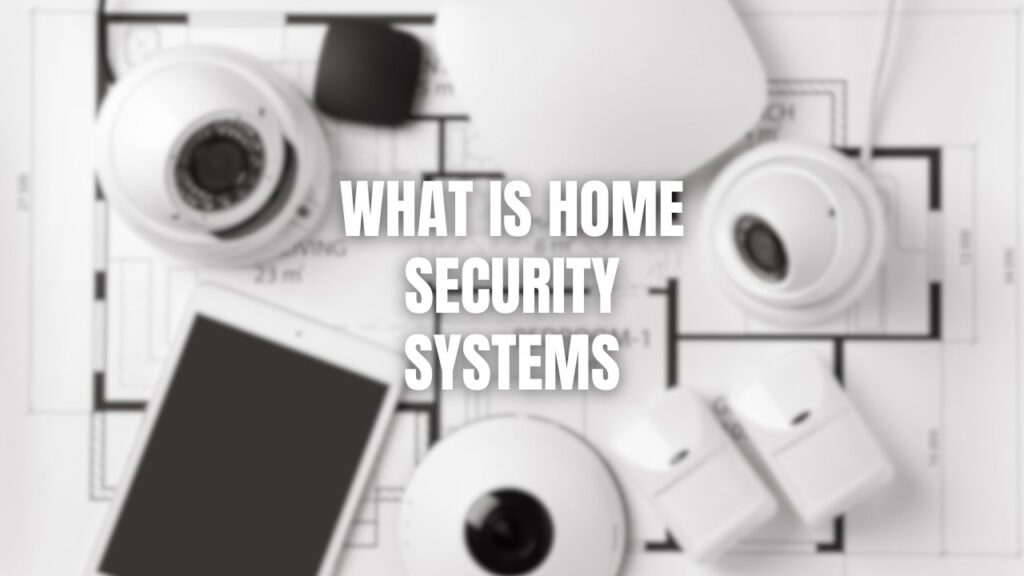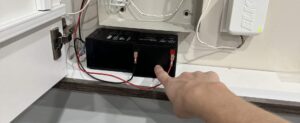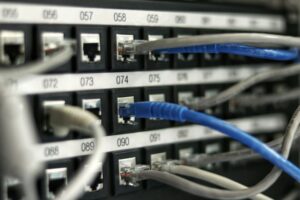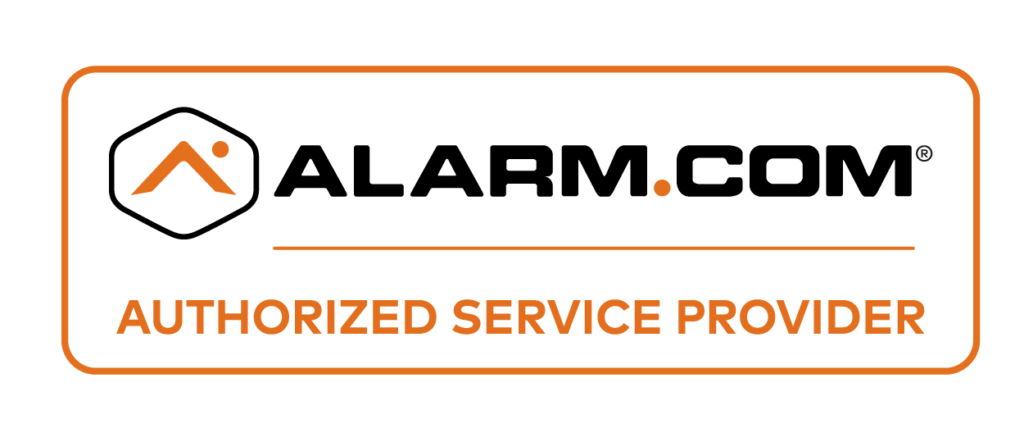A home security system is designed to detect and prevent intruders from entering your home. These systems use a combination of sensors, alarms, cameras, and monitoring capabilities to keep your home safe when you’re away. In this blog post, we’ll explore how home security systems work, the different types available, and what to look for when choosing a system for your home.
What is Home Security Systems?
Home security systems are electronic monitoring and alarm systems designed to detect intrusions or threats and prevent crime at a home or residential property. They operate by linking various sensors and surveillance cameras around the home to a central control system, so that when a sensor detects an intruder, it triggers an alarm and alerts security monitors or emergency personnel.

How Do Home Security Systems Work?
The main purpose of home security systems is to deter potential burglars and keep homes safe by sounding alarms and contacting authorities in response to suspicious activity or security breaches. Home Security systems work by creating a network of security sensors and surveillance cameras around your home that are linked to a main control panel.
When the system is armed and a security sensor detects motion or an entry point like a door or window is breached, it will trigger the alarm system. This often includes loud sirens and flashing lights to scare away intruders. It also sends a signal to a monitoring center, so emergency services can be notified.
Home security systems rely on various types of security sensors placed in strategic locations around your home. Common security sensors include:
- Door/Window Sensors – Detects when a door or window is opened.
- Motion Sensors – Detects movement.
- Glass Break Sensors – Listens for the sound frequency of breaking glass.
- Smoke/Heat Sensors – Detects smoke and extreme temperatures to alert in case of fire.
- Flood Sensors – Detects water leaks or flooding.
- Panic Buttons – Allows you to trigger the alarm manually in an emergency.
The sensors communicate wirelessly with the control panel to alert when they are triggered. The control panel then sounds the alarm, communicates with the monitoring center, and can also alert you on your smartphone through an app. This allows you to monitor your home security system remotely and take any necessary action, like contacting the authorities.
Types of Home Security Systems
Home security systems can be wired or wireless, professionally monitored or self-monitored, and come in both DIY and professionally installed options. The main types of home security systems include:
Professional Monitoring Security Systems
Professionally monitored security systems are monitored 24/7 by an alarm monitoring company. When the alarm is triggered, the company receives the alarm signal and can dispatch emergency responders if needed. This provides an added layer of security and assurance when you’re away from home for extended periods.
Self-Monitored Security Systems
Self-monitored systems send mobile alerts to your smartphone when sensors detect activity in your home. While convenient and affordable, self-monitored systems rely on you to contact emergency services in the event your alarm goes off.
Smart Home Security Systems
Smart security systems integrate your security sensors and cameras with other connected home devices like smart locks, lights, and thermostats. This allows you to control your entire home security network from a single app. Smart security systems typically work with voice assistants like Alexa and Google Assistant for hands-free voice control.
Wireless Security Systems
Wireless systems use radio frequency or cellular technology so no hardwiring is needed. This makes installation quicker and more affordable, and also allows you to easily add sensors later. The components simply communicate wirelessly with a central control panel.
Wired Security Systems
Wired systems have the sensors and control panel physically connected via wiring. This can provide stronger connectivity, but installation costs tend to be higher. Wired systems are less common in modern security systems as wireless options have advanced.
DIY Security Systems
DIY home security systems are designed so you can install them yourself without a professional. DIY systems typically just need you to mount sensors and cameras where you want them, then connect them to the control panel. DIY systems provide an affordable option for basic monitoring.
Professionally Installed Systems
Professionally installed systems require hiring a security company to assess your home, recommend equipment, and properly install your system. While pricier, professional installation ensures your sensors, wiring, and configuration are optimized for your home.
What to Look for in a Home Security System
When reviewing home security systems, here are some key factors to consider:
- Type of monitoring – Decide whether you want professional monitoring or if self-monitoring is sufficient. Professionally monitored systems cost more but provide 24/7 monitoring and emergency dispatch.
- Ease of use – The system should have an intuitive control panel or app for easily arming, disarming, and configuring the system. Controls like key fobs or touchscreen panels are convenient.
- Wireless capabilities – Most modern security systems are wireless for easier installation. Make sure the wireless connectivity technology is robust and secure.
- Expandability – Choose a system that allows you to add components like cameras and sensors as your needs evolve. Modular systems with wireless connectivity provide the most flexibility.
- Smart home integration – Many systems now integrate with smart home platforms like Amazon Alexa, Google Assistant, Apple HomeKit, Samsung SmartThings, etc. This allows you to control your security through voice commands.
- Cameras – Surveillance cameras provide visual verification of activity happening inside and around your home. Look for HD cameras with features like motion detection, night vision, and remote access.
- Sensors – More sensors like motion, glass break, smoke, and carbon monoxide detectors increase the perimeter of security around your home.
- Automation – Some systems can automatically control lights, locks, heating, etc. This deters intruders by making it appear someone is home.
- Alarm sound – The alarm should have a loud audible siren built-in that sounds when sensors are triggered to scare away intruders and alert neighbors.
- Energy efficiency – Look for systems with solar syncing or battery backups to keep your system operational during power outages.
- Warranty – Professional home security systems should come with multi-year warranties and support. Make sure adequate technical assistance and customer service is provided.
Benefits of Home Security Systems
There are many benefits to installing and owning a home security system for both safety and peace of mind:
- Deters potential burglars – Just the visible presence of a security system is often enough to deter criminals and force them to move on to an easier target.
- Rapid emergency response – Security alarms alert police faster than you can make a phone call, allowing for a quicker response time.
- Prevent crime even when not home – Security systems keep working even when you’re away to detect and react to any intrusions.
- Catch crimes in progress – Security cameras provide visual verification of any activity happening inside or around your home. This can help identify perpetrators.
- Provides evidence for police – Security footage can assist police investigations and serve as evidence to help identify and prosecute criminals.
- Sense danger – Smoke, carbon monoxide, flood, and temperature sensors alert you to dangers even when you’re not home.
- Remotely monitor your home – View cameras and arm your system from your smartphone when traveling or on vacation.
- Complement smart home – Integrate your security system with other smart devices for complete home automation and control.
- Peace of mind – Enjoy greater comfort and reassurance knowing your home and family are protected at all times.
- Potential insurance discounts – Some providers offer a discount on homeowners insurance premiums for professionally monitored security systems.
Final Thoughts
Installing a home security system is one of the best ways to deter crime and protect your home from intruders, theft, and property damage. Security systems act as an always-on sentinel, sounding alarms and notifying police at the first sign of danger. Whether you prefer a DIY system or a professionally installed system, smart home integration and wireless capabilities make today’s security systems more convenient and effective than ever. Take time to decide which features and capabilities match your budget and needs to find the ideal system to help keep your home secure.
Contact Callaway Security for professionally installed and monitored home security systems!









